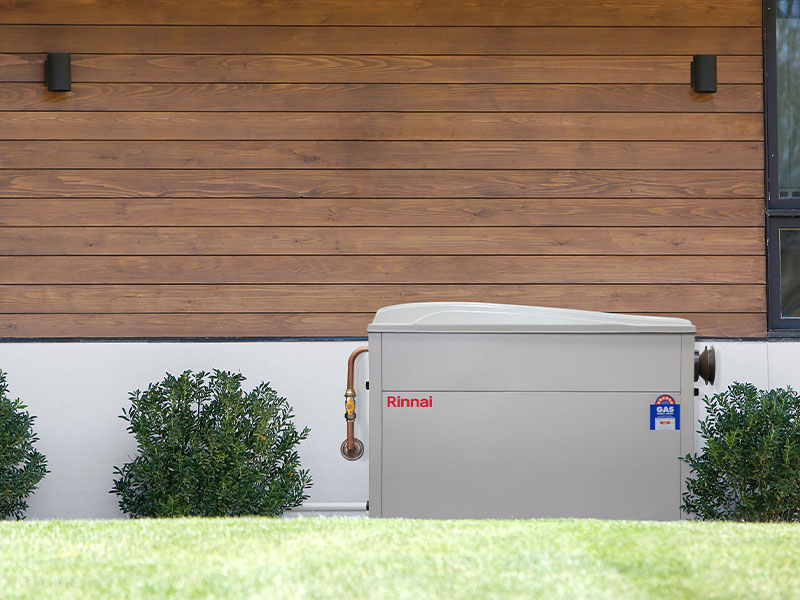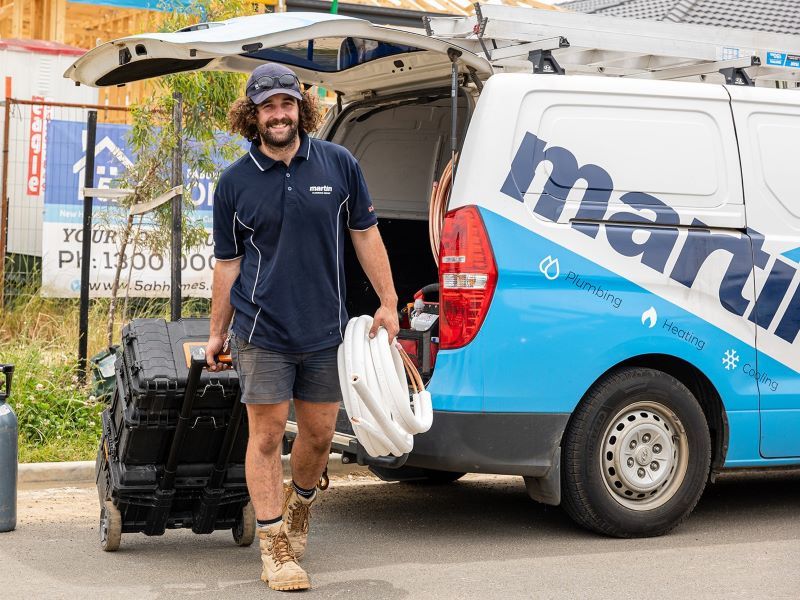Gas Ducted Heating vs Electric Ducted Heating – which one is better for your home?
When it comes to heating and cooling your home, there are many options to choose from. Two of the most popular options are ducted gas heating and ducted reverse cycle air conditioning. Both have their pros and cons, but which is better?
As heating and cooling specialists in Geelong, Ballarat and Melbourne, we install both gas and electric systems. Contact us for personalised advice or a quote. Otherwise, keep reading to explore the differences between gas and electric ducted heating systems, including…
Gas Ducted Heating Pros and Cons
Ducted Gas Heating is a central heating system that uses natural or bottled gas as its fuel source.
This system is designed to provide warmth throughout your entire home through a network of ducts and vents.
Ducted gas heating is efficient, effective, and offers a high level of control over the temperature in your home.

Pros
Energy efficient options
Ducted gas heating provides warmth throughout your home in a matter of minutes. For optimum energy efficiency, install a 5 or 6 star energy rated unit plus Zoning.
Fast to warm up
Gas heating is fast to warm up your home.
Reliable
With proper maintenance, ducted gas heating systems can last for many years and are generally considered to be a reliable heating option.
Upfront costs
Gas Ducted Heating systems are around 50% cheaper than a Ducted Reverse Cycle systems
Cosy
Gas has a cosy warm feel to it that some people prefer.
Cons
Non-renewable energy
Natural gas is a fossil fuel, and burning it contributes to greenhouse gas emissions.
Running costs
Natural gas has traditionally been cheaper than electricity, making ducted gas heating a cost-effective option for heating your home. However, with the push towards renewables, the price of natural gas has risen in recent times.
Availability of natural gas
New housing estates being built now do not have access to natural gas.
Please note: We don’t recommend running on LPG if you don’t have access to natural gas due to the cost of LPG.
Maintenance
Gas ducted heating systems require regular maintenance, including bi-annual check-ups and cleaning, to ensure they are operating safely and efficiently.
For more information, visit our Gas Ducted Heating page.
Electric Ducted Heating Pros and Cons
Electric Ducted Heating is provided by a Ducted Reverse Cycle Air Conditioner. It is a central air conditioning system that uses refrigerant to cool or heat your home.
This system is designed to provide climate control throughout your entire home through a network of ducts and vents. Ducted reverse cycle air conditioning is efficient, effective, and offers a high level of control over the temperature in your home.

Pros
Utilizes electricity
Due to renewable energy such as Solar becoming more accessible, many people are opting for electrical appliances
Heats and cools
Ducted reverse cycle air conditioners both heat and cool your home, making it a versatile option for all seasons.
Energy efficient technology
Modern ducted air conditioning systems utilise energy efficient refrigerant technology, inverters and zoning, making them an energy efficient system
Government rebates
With advances in technology, ducted reverse cycle air conditioning has become more affordable, making it an accessible option for many homeowners.
Cons
Upfront costs
Installing a ducted reverse cycle air conditioning system, including ducts, outlets and electrical requirements is more expensive than a ducted gas heater. Although there are currently Victorian government rebates which can reduce this cost by thousands of dollars.
Noise
Some ducted reverse cycle air conditioning systems can be noisy, particularly if they are not installed properly.
Slower to heat up in frosty conditions
Once the outdoor temperature drops below 4 degrees Celsius, it will take a while for Ducted Reverse Cycle air conditioners to kick in. They have defrost mode for this reason, but for this reason, if frost is expected, it’s recommended to run your system overnight on a low setting.
Maintenance
Ducted reverse cycle air conditioning systems require regular maintenance, including bi-annual check-ups and cleaning, to ensure they are operating safely and efficiently.
For more information, visit our Ducted Air Conditioning page.
In Conclusion
So, which is better: Gas Ducted Heating or Ducted Reverse Cycle Air Conditioning?
While Gas Ducted Heaters have been used extensively in new house builds in the past, it is more common to have new houses built with Ducted Reverse Cycle Air Conditioners as they are an all-in-1 home heating & cooling solution and can use renewable energy such as solar, which contributes to the house’s overall energy rating.
Most Gas Ducted Heaters we are now installing are replacements for those who already have it but require a new unit, rather than brand new systems.
Ultimately, the answer comes down to your individual needs, preferences and budgets.
For further information on the benefits of each system, visit our product pages for Gas Ducted Heating systems and Electric Ducted Reverse Cycle heating & cooling systems.

